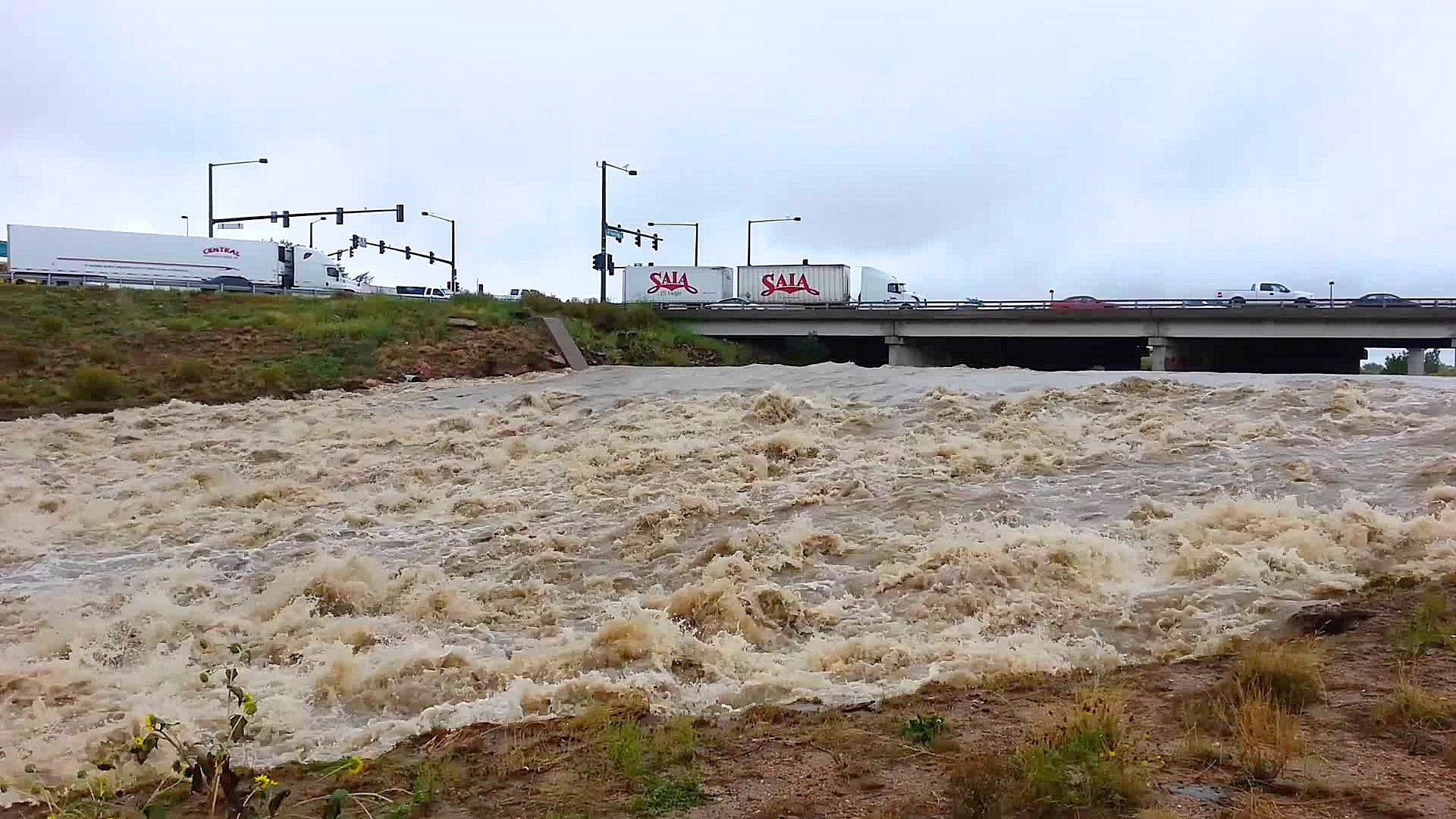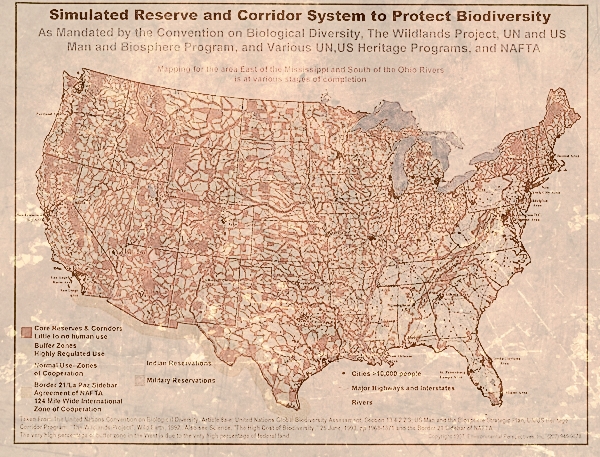Plans using vague terms such as ‘banking, ‘augmentation,’ ‘fallowing,’ ‘consumptive conservation,’ etc., offer property owners–mostly farmers and ranchers–generous cash payments to decrease or stop using the water to which they own rights. But maintaining those water rights is contingent upon property owners putting the water to beneficial use. Once annual consumption is being decreased through man made manipulation and by taking water out of prior appropriation, and the water is no longer being put to beneficial use, those rights may evaporate.
Comments by editor
Over time, water laws in Colorado have become unnecessarily complex for one reason, the laws have not been administered according to the original provisions in the State Constitution.
Although Colorado statute says that surface and subsurface waters are connected, the state does not give priority to owners’ rights to wells drilled in more recent decades. Wells which are connected with older surface water rights, such as in river basins, take a back seat to surface water rights, despite the fact that the wells are hydrologically connected to surface waters which have priority rights. To illustrate: An upstream farmer may own senior water rights to river allocations, and therefore has priority use of the water. A downstream farmer may have junior water rights, but may actually have more water at his disposal for beneficial use because the upstream farmer is not allowed to pump from his own well(s). The upstream rancher’s rights to well water are not recognized by the state as having priority, despite the fact that it is articulated in state statute that well water is hydrologically connected to the river (surface) water.
This is an essential contradiction in the way Colorado water laws are administered, and property owners want to clarify and correct the problem in order to protect senior water rights throughout the state.
Because administration of water contradicts Colorado water law, and oversight and enforcement at the state level are lax, special interest groups, such as the Nature Conservancy and Trout Unlimited, have advocated local and regional water plans that undermine senior water rights. Plans using vague terms such as ‘banking, ‘augmentation,’ ‘fallowing,’ ‘consumptive conservation,’ etc., offer property owners–mostly farmers and ranchers–generous cash payments to decrease or stop using the water to which they own rights. But maintaining those water rights is contingent upon property owners putting the water to beneficial use. Once annual consumption is being decreased through man made manipulation and by taking water out of prior appropriation, and the water is no longer being put to beneficial use, those rights may evaporate. In other words, ‘consumptive use’ is devalued.
Citizens in northeastern Colorado, whose operations are connected to the South Platte River watershed, are struggling with unnaturally high upstream water levels because they are not allowed to pump from their wells for beneficial use, but are required to ‘augment’ the river by sending water back into it. Unnatural flooding events are just one consequence of this contradictory administration of water law. Property owners are now bringing these issues to the attention of the State Legislature in the form of a Resolution to Enforce Existing Law. Because these citizens are aware that the S. Platte River is not alone in its pursuit to correct defects in water law administration, they are pleased to offer a statewide solution that requires only the proper enforcement of Colorado’s preexisting water laws.
The following Resolution has been issued to several Colorado State Legislators.
To address your concerns, we present to you this Resolution. We’re in hopes to find legislative sponsorship and see its passage. Adhering to our preexisting law of “Prior Appropriation” will resolve our water problems statewide.
A Resolution
A Resolution to reaffirm the process by which Colorado Water Rights are to be administered under the statutory laws of the State of Colorado.
Be it hereby resolved by this legislative body, the State of Colorado directs and requires State Water Engineers to administer, distribute and regulate the water of the state in a manner consistent with the rules of the Prior Appropriation system: *“First in time, first in right” or “Prior Appropriation” doctrine is based on *Priority Date and amount, aka *Allotment Quantity,” of both surface water and groundwater tributary to a surface stream.
There has been no law made that extinguished, “first in time, first in right.” Therefore, we wholly defer to C.R.S. 37-92-102 and hereby declare C.R.S. 37-92-102 stand as the policy of the state of Colorado that, in the determination of water rights, uses, and administration of water, the following principles shall apply:
The Legislator finds the language of this statute to be clear and unambiguous.
This Resolution hereby orders the State Engineer shall apply the law as it is written.
From: C.R.S. 37-92-102 Legislative declaration basic tenets of Colorado Water Law
“(2) Recognizing that previous and existing laws have given inadequate attention to the development and use of underground waters of the state, that the use of underground waters as an independent source or in conjunction with surface waters is necessary to the present and future welfare of the people of this state, and that the future welfare of the state depends upon a sound and flexible integrated use of all waters of the state, it is hereby declared to be the further policy of the state of Colorado that, in the determination of water rights, uses, and administration of water, the following principles shall apply:
(a) Water rights and uses vested prior to June 7, 1969, in any person by virtue of previous or existing laws, including an appropriation from a well, shall be protected subject to the provisions of this article.
(b) The existing use of groundwater, either independently or in conjunction with surface rights, shall be recognized to the fullest extent possible, subject to the preservation of other existing vested rights, but, at his own point of diversion on a natural watercourse, each diverter must establish some reasonable means of effectuating his diversion. He is not entitled to command the whole flow of the stream merely to facilitate his taking the fraction of the whole flow to which he is entitled.
(c) The use of groundwater may be considered as an alternate or supplemental source of supply for surface decrees entered prior to June 7, 1969, taking into consideration both previous usage and the necessity to protect the vested rights of others.
(d)No reduction of any lawful diversion because of the operation of the priority system shall be permitted unless such reduction would increase the amount of water available to and required by water rights having senior priorities.”
*First in time, first in right. An appropriation is made when an individual physically takes water from a stream (or underground aquifer) and places that water to some type of beneficial use. The first person to appropriate water and apply that water to use has the first right to use that water within a particular stream system. This person (after receiving a court decree verifying their priority status) then becomes the senior water right holder on the stream, and that water right must be satisfied before any other water rights can be fulfilled.
*Priority date: “previous, existing, pre-existing, valid, vested and senior water rights.” and amount of surface and groundwater connected, not separate.
The appropriation date of a water right is the earliest date on which the applicant can demonstrate the initiation of the appropriation, and applies to surface and groundwater (conjunctive use) tributary to a surface stream.
*surface water and groundwater are connected.
*Allotment Quantity: Assume three water-users exist on a stream system with adjudicated water rights totaling 5 cfs (cubic feet per second). The user with the earliest priority date has a decree for 2 cfs, the second priority has a decree for 2 cfs, and the third priority right has a decree for 1 cfs of water. When the stream is carrying 5 cfs of water or more, all of the rights on this stream can be fulfilled. However, if the stream is carrying only 3 cfs of water, its priority number 3 will not receive any water, with priority number 2 receiving only half of its 2 cfs right. Priority number 1 will receive its full amount of 2 cfs under this scenario.
This process of allocating water to various water users is traditionally referred to as “Water Rights Administration,” and is the responsibility of the Division of Water Resources.
Related news:
Well shut down has caused significant harm to Gene and Jan Kammerzell’s Arborland Nursery https://tclf.org/sites/default/files/microsites/everytree/arborland.html
Sakata Family Farm Prevails Against All Odds
Harry Strohauer, a major potato grower, Strohauer Farms, has been forced to move a significant part of his operation from northeastern Colorado to New Mexico.
Glen Fritzler has had to install pumping devices to try and dewater his basement, due to the non-historic high water table. Fritzler’s also had to change his crops due to well shut down. http://www.fritzlermaze.com/
Free Range Report
Thank you for reading our latest report, but before you go…
Our loyalty is to the truth and to YOU, our readers!
We respect your reading experience, and have refrained from putting up a paywall and obnoxious advertisements, which means that we get by on small donations from people like you. We’re not asking for much, but any amount that you can give goes a long way to securing a better future for the people who make America great.
[paypal_donation_button]
For as little as $1 you can support Free Range Report, and it takes only a moment.



